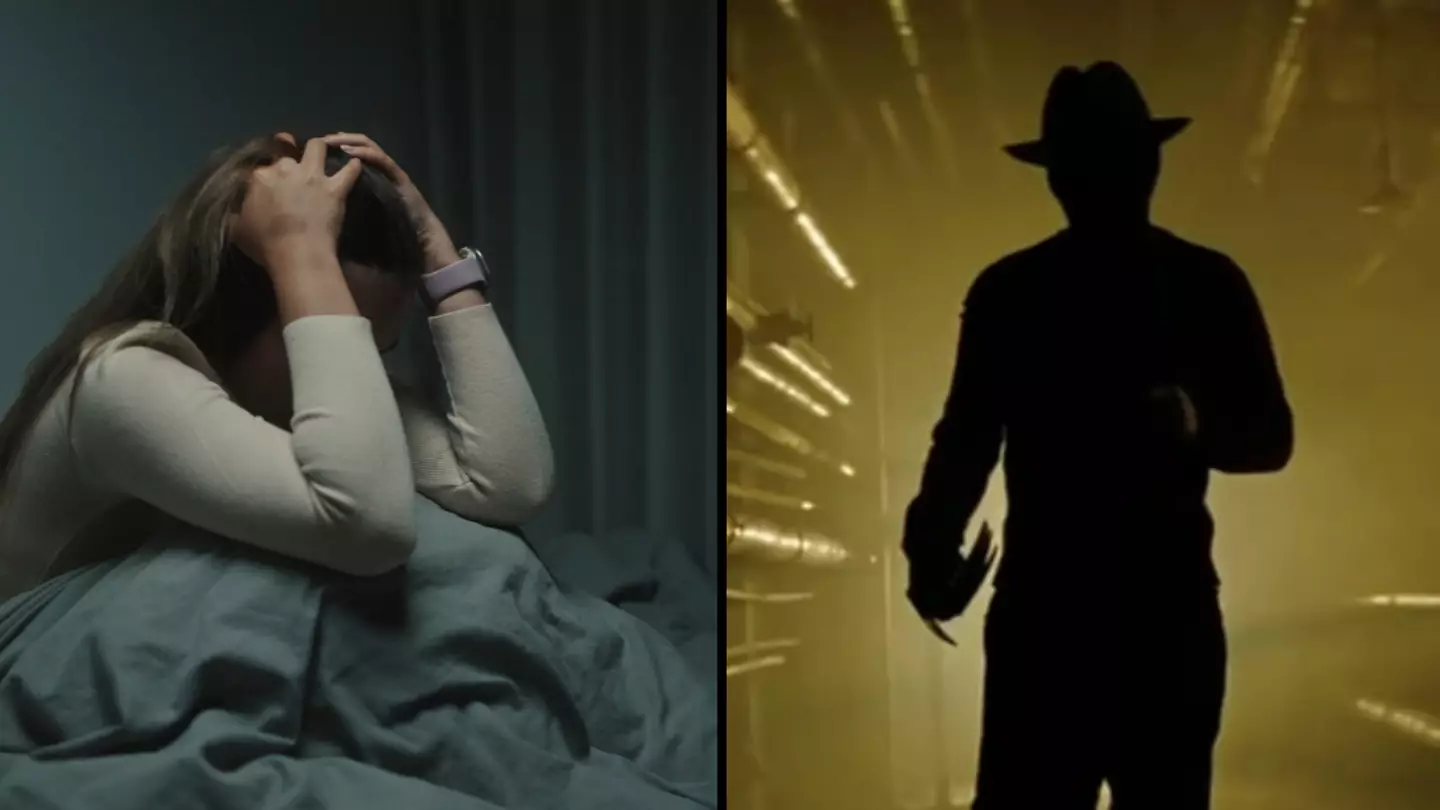
It might have been 40 years since the terror of Freddy Krueger was unleashed upon global audiences, but the fear of A Nightmare on Elm Street lives on four decades later.
And with it, the worry that the film brought about by the idea of you dying in your dreams.
Now, a scientist has revealed what that means for you if you've experienced it, and it is rather chilling. Pay attention.
Back on 9 November, 1984, the A Nightmare on Elm Street franchise was born and with it, chilling images of Freddy Krueger that have defined the horror genre alongside other villains such as Michael Myers, Jigsaw, and more recently, Art the Clown.
Advert
Haunting teenagers in their dreams, Krueger would attack and kill them in the Wes Craven franchise, including a very young Johnny Depp in his very first film role as Glen Lantz.
And while actual death is not something that is going to happen to you for imagining such a thing in your vivd dreams, the nightmare itself could indicate something worrying nonetheless.
Professor Tiina Paunio, a sleep expert from the University of Helsinki, told MailOnline that these nightmares are likely related to parts of our brains associated with stress.

It is during a nightmare that there is a spike on the levels of something called noradrenaline in the amygdala and locus coeruleus regions of the brain; regions of the brain associated with fear, anxiety, and rage.
"Nightmares usually occur under emotional stress - so acute life stress is one risk factor," Professor Paunio said.
"Lifestyle, in particular alcohol use, is another well-known risk factor for nightmares."
Getting scared, even in dreams, sees your body enter fight or flight mode. When this happens, your system is flooded with adrenaline and cortisol due to the fear that feels very real.

And while adrenaline can actually be the thing that saves your life in a real life encounter with danger, it is in fact lethal to your organs in large doses.
So if you're vulnerable, there is a chance the made up fatal encounter could end up costing your life, the professor explains.
This is rare, she adds.
"Generally, the health risks of nightmares are typically indirect and are linked to the causative factors that underly nightmares," Prof Paunio explained.
"In vulnerable individuals, for example, those with a heart disease, nightmares can indirectly contribute to death, although this is rare."
Being physically frightened to death is incredibly rare, the American Heart Foundation says. In fact, if this happens it is likely due to an underlying cardiovascular condition.
Topics: Film, Health, Mental Health, Science, Sleep